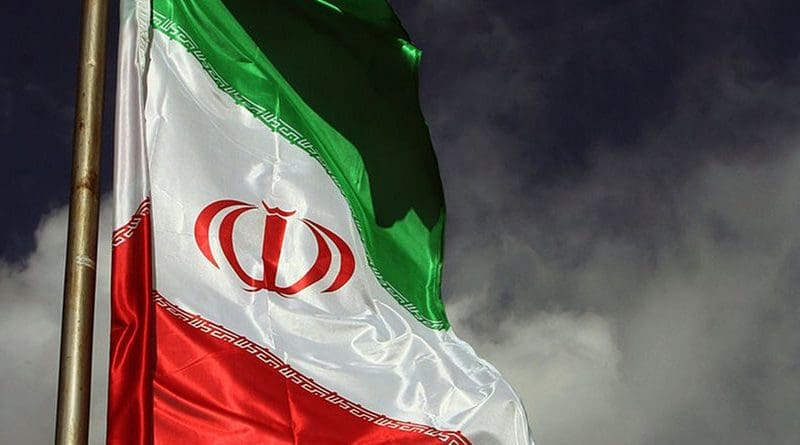Iran Conference A Crucial Test For Poland – Analysis
The Trump administration’s international summit for security and stability in the Middle East, which is due to be held in Warsaw, Poland, next month is making waves. For Warsaw, the US announcement is filled with implications for its position in the Middle East, as well as its role in Europe. There are several angles as to why Poland seeks this conference, with this move signaling its emergence as a European leader, which has dramatic implications.
Warsaw is an important political and military ally of the US. Importantly, Poland is tethered to the US because of liquefied natural gas (LNG). America supplies Poland with its LNG requirements, which allows Warsaw latitude in policy initiatives and pursuits that are tied to Washington. The Iran conference is meant to further cement ties between the two nations in a transactional way. The Poles, who have offered to host and pay for a “Fort Trump” military base, are at the forefront of the US-Russia confrontation in Europe.
The idea of the conference is to address a range of critical issues, including terrorism and extremism, missile development and proliferation, maritime trade and security, and the threats posed by Iran’s proxy groups across the region. US Secretary of State Mike Pompeo said: “We will gather around a number of different topics … fighting (Daesh) is part of that … and address how we can get the Islamic Republic of Iran to behave like a normal nation.”
The idea of Poland as host of the conference is also about how Iran behaves in Europe. Iran has used its intelligence capabilities for nefarious means, thereby spreading pro-Tehran propaganda. Iran is strong in Europe because of a lax EU attitude. The recent ejection of Iranian spies from Western European countries is illustrative of the infiltration, which includes planning terrorist attacks. Thus, with some European countries balking at attending the conference, the ability of Iran to divide Europe over the meeting’s rationale becomes an important tactical achievement that will have a lasting impression. Much of this type of action is similar to Russian means and methods to break European unity by exacerbating negative social trends and thereby interfering in sovereign affairs.
Warsaw is facing resistance from Iran for agreeing to host such an event. Rhetoric about Iran halting the issuance of visas and canceling cultural festivals is occurring as Tehran views the hosting as a deep insult. For Iran, Poland is forgetting about when it hosted more than 120,000 Polish refugees during the Second World War and other historical interludes. Iranian pressure and anger will only continue to build against Poland’s hosting of the conference.
To be sure, Poland wishes to enhance its international position and prestige, having previously hosted a NATO summit in Warsaw in July 2016. Poland is looking to the rest of Europe and sees France, Germany and Italy in the throes of change and sees itself as a rising power in European affairs. With Russia’s actions in Ukraine, the Balkans and Eastern Europe as a whole, Poland is deeply concerned about the coming years. Warsaw is banking on Washington’s backing for years to come.
The conference’s outcomes and associated optics will tell several stories. The impact for Poland is going to be about being in the spotlight during this perhaps unpopular event. Yet Polish Foreign Minister Jacek Czaputowicz said that Warsaw’s ambition is to find common ground on Iran and the perception of sanctions against Tehran that differ sharply between the US and the EU.
Czaputowicz rejected the Iranian criticism of Poland and said he hoped the conference would provide a new platform for international dialogue. Poland supports EU efforts to preserve the nuclear agreement with Iran, but Czaputowicz argued that the deal alone will not prevent Iran from “destabilizing” the region. This attempt to bridge the differences between the US and Europe is a significant development.
Many of the same issues that tear at the fabric of other European societies also affect Poland. Warsaw’s nationalist government is increasingly at odds with the EU. The ruling Law and Justice Party is seeking to create a new identity for the country that is defying the trend lines of the rest of the EU by stepping forward with bold initiatives that challenge the strategic environment Warsaw finds itself in today, specifically with the Baltics and Ukraine.
The Iran conference’s results may very well have an effect on the outcome of the national elections due in Poland this year. Upon joining the EU in 2004, the former communist country of 38 million people was regarded as a model of democratic and economic transformation. That perception ended several years ago. Now, more than any other time, Poland is showing an assertiveness that is unique to Europe at this geopolitical juncture by offering the US such a forward presence.
Overall, Poland faces a test — a test that could cement it firmly as a nation to watch for future initiatives, which further establishes a buttress against Russia that becomes part of the security landscape as the Trump administration’s anti-Iran campaign continues.

